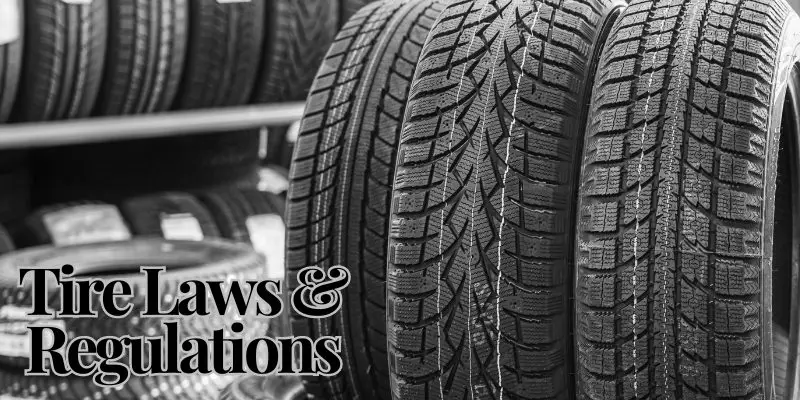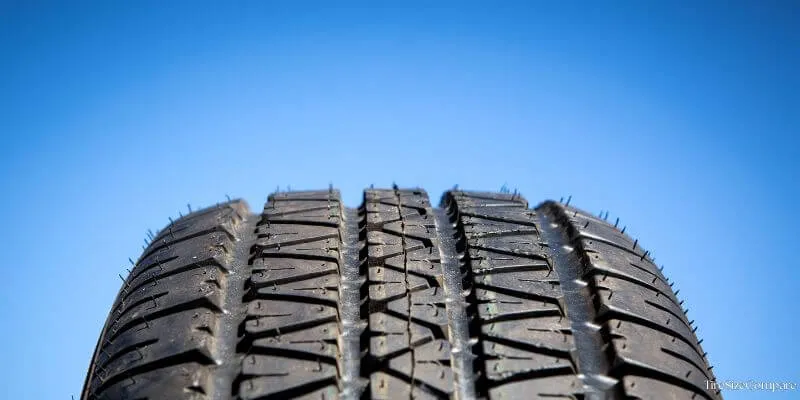Tire Laws & Regulations

Tire laws and regulations are crucial for ensuring vehicle safety and environmental standards. They cover aspects like tire tread depth, age, type, and maintenance requirements. Understanding these laws helps drivers avoid fines and ensures their vehicles are safe for the road.
Why it’s Important?
Imagine you’re driving down the highway, and suddenly, your tire blows out. It’s a scary situation that can lead to a serious accident.
That’s where tire laws and regulations come in. They help prevent these kinds of incidents by making sure that the tires on your car are safe and reliable.
Think of it like the rules you follow when playing a game. Just as those rules keep the game fair and fun for everyone, tire laws and regulations keep our roads safe for all drivers.
Tread Depth
One of the most important regulations is the minimum tread depth. Tread depth is the thickness of the tire’s surface that makes contact with the road.
In many countries, the legal minimum tread depth is 2/32 of an inch. Tires with insufficient tread depth are dangerous as they can lead to reduced traction, especially on wet or icy roads.
Tire Age
Tires are made of rubber, which degrades over time. Most manufacturers recommend replacing tires every six years, regardless of tread wear. Old tires can become brittle and are more prone to blowouts, which can cause serious accidents.

Tire Types
Different tires are designed for different purposes. Laws often specify what type of tire is suitable for various conditions.
For example, in snowy regions, winter tires or chains may be required during certain months. These tires provide better grip in cold conditions, improving safety.
Tire Pressure
Maintaining the correct tire pressure is not just about performance but also safety. Under-inflated tires can overheat and lead to blowouts.
Over-inflated tires, on the other hand, can reduce traction. Regular checks and proper maintenance are often legally required to ensure tires are safe and effective.
Environmental Regulations
Tire laws also include environmental regulations. This includes proper disposal of old tires to prevent pollution. Many places have strict rules about where and how to dispose of used tires to avoid environmental harm.
Penalties for Non-Compliance
Failing to comply with tire laws can result in fines and penalties. Driving with worn-out tires, improper tire types, or incorrect tire pressure can all lead to legal issues. It’s not just about avoiding fines but ensuring the safety of everyone on the road.

Checking Your Tires
Regularly checking your tires for wear and tear, correct pressure, and other issues is a simple yet effective way to stay within the law and ensure safety.
Use a tread depth gauge to measure the tread and ensure it meets the legal requirement. Also, check for any cracks, bulges, or other signs of damage.
Buying the Right Tires
When buying new tires, make sure they meet the legal standards of your country. Look for the DOT code on the tire, which indicates that it complies with the Department of Transportation’s safety standards.
This code can also tell you the tire’s manufacturing date, which helps in ensuring you are not buying old stock.
Benefits of Following Rules
Following tire laws and regulations not only keeps you and others safe on the road but can also save you money in the long run. Properly maintained tires last longer and can improve your vehicle’s fuel efficiency. Plus, you’ll avoid costly tickets and fines for driving with unsafe tires.
So, the next time you’re tempted to ignore that low tire pressure warning or put off replacing your worn-out tires, remember the importance of tire laws and regulations. By taking a few simple steps to keep your tires in good shape, you’ll be doing your part to make our roads safer for everyone.
Conclusion
Tire laws and regulations may seem complicated at first glance, but they are in place for a very simple reason: to keep drivers safe.
By understanding the basics of tread depth, proper inflation, recalls, and winter tire requirements, you can ensure that your vehicle is always in compliance with the law and ready to handle whatever the road throws your way.
Remember, taking care of your tires is not just a legal obligation – it’s also an important part of being a responsible driver.



